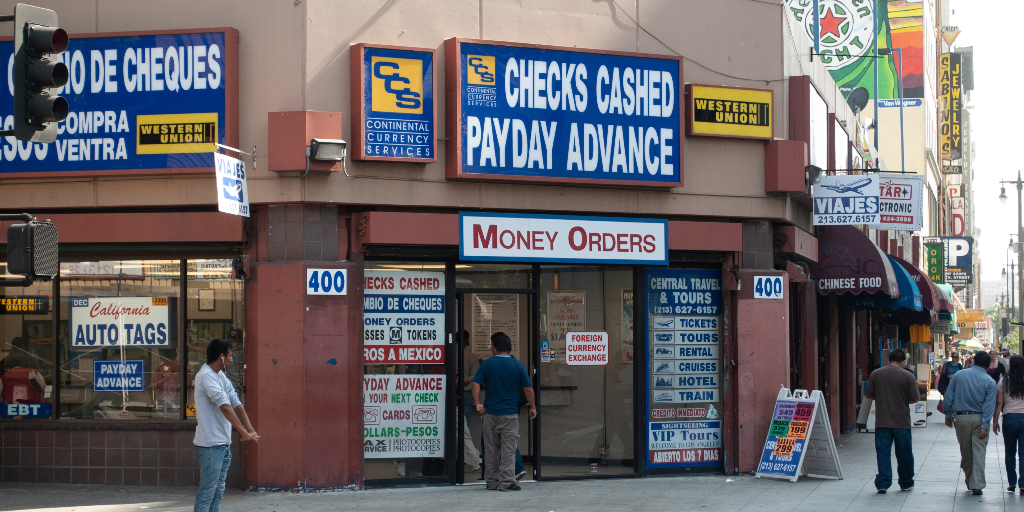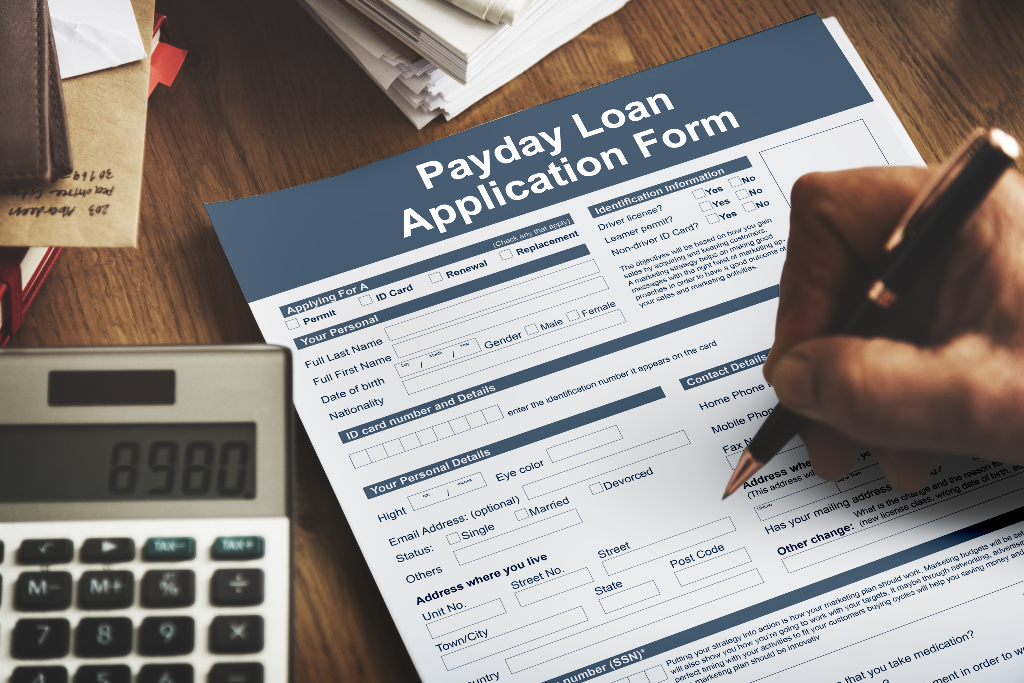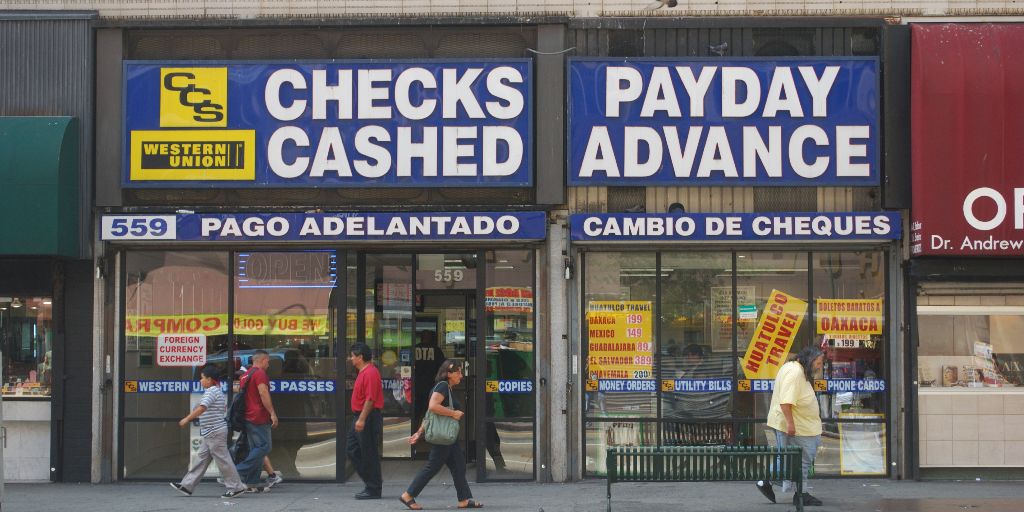What is a Payday Loan?

- A survey conducted by Bankrate found that 56% of Americans would be unable to pay a $1,000 unexpected expense out of pocket.
- Those who live paycheck to paycheck or have bad credit are more likely to use a payday loan because of the immediate cash advance.
- Payday lenders are businesses that provide short-term, high-interest loans to people who need money quickly.
Nearly two years after the coronavirus pandemic began, the majority of Americans are still struggling to establish a solid savings account. A survey conducted by Bankrate found that 56% of Americans would be unable to pay a $1,000 unexpected expense out of pocket. Many consumers tend to turn to payday loans to help them financially until their next paycheck.
Payday lenders typically won't perform a thorough credit check or ask any questions when determining whether you can repay the loan. As a result, loans are frequently a good way to get yourself into a debt trap that's nearly impossible to get out of because they are made based on the lender's ability to collect, not your ability to pay.
Definition of Payday Lenders
Payday lenders are businesses that provide short-term, high-interest-rate loans to people who need quick cash. Several states have a set limit on the amount they can give for a payday loan, but a common amount is $500. The loans are typically due by your next payday.
Why is Payday Lending Seen as a Predatory Practice?
Payday lenders make their money by charging high-interest rates on short-term loans. The loans can have an annual percentage rate (APR) of as much as 400% or higher. According to United Way, the state of Texas has the highest payday loan rates in the country, with typical APRs running as high as 664%—more than 40 times the average credit card interest rate.
People who find themselves in a financial crisis with limited resources may turn to a payday loan as a quick fix. However, when a borrower must pay back their payday loan, plus the interest charged on the loan, it can easily lead the borrowers into a cycle of debt.

Payday loans are viewed as a predatory lending practice for many reasons that include:
- Payday loans are short-term.
- Payday loans have extremely high-interest rates.
- Some payday lenders require you to give them your bank account information.
- Payday loans can negatively affect your credit score.
- Payday loans can be sent to a debt collection agency if it isn’t repaid on time.
Recommended Read: Pay Off Debt Using the Snowball Method
How Much Do Payday Loans Cost?
The Consumer Financial Protection Bureau (CFPB) estimates that a payday lender will charge $10 to $30 for every $100 borrowed. An APR of 391% is calculated if a payday lender charges $15 for a $100, two-week loan.
If a borrower fails to make the full loan payment on their next payday, the lender adds a fee and the cycle of the loan payoff repeats itself. Borrowers may find themselves owing more in interest after a few months than they did for the initial loan.
Payday loan companies can cause their clients to become dependent on them because of how quickly the loans are due and how much they can cost. As a result of the requirements to pay back the loan, it can be challenging for a borrower to repay a loan and cover their regular monthly expenses.
If you rely on payday loans, you will find yourself with less money to cover your expenses each month while having a much harder time repaying your debts. Eventually, you could find yourself owing an entire paycheck or more to the payday lenders
Recommended Read: Challenges Faced by the Unbanked, Underbanked, and Financially Excluded
The Military Lending Act (MLA)
In 2006, the United States Congress passed the Military Lending Act (MLA) in response to concerns about predatory lending practices among payday lenders targeting servicemembers and their families.
The MLA prohibits unfair acts and practices by lenders when they offer and charge interest on certain consumer loans, including payday loans. The MLA also requires lenders who make covered loans under this law to provide certain disclosures to borrowers before entering into any agreement for a covered loan.
The MLA caps annual percentage rates at 36%, which is lower than what most payday lenders are allowed to charge under state laws. Additional fees for credit-related ancillary products, such as finance charges and specific application and participation fees, are also subject to the cap.
How Payday Loans Can Affect Your Credit Score
Applying for a payday loan doesn't impact your credit score or appear on your credit report because payday lenders frequently don't run a credit check. Additionally, once you've accepted a loan, payday loans won't appear on your credit report. They consequently don't assist you in raising your credit score.

Image Credit: Shutterstock / image_vulture
However, if the loan defaults and the lender sells your account to a collection agency, they may show up on your credit report. When a collection agency buys a past-due account, it can report it to the credit reporting agencies as a collection account, which could lower your credit score.
How to Establish an Emergency Fund
An emergency fund is when you have at least three to six months' worth of expenses in case of a financial emergency, like a car repair or loss of a job. By establishing an emergency fund, you can avoid the need for payday loans or other predatory lending practices.
To establish an emergency fund, you first have to gain a general knowledge of your overall financial picture. By getting a clear financial picture of your income and expenses, then you can start organizing your finances by creating a budget. You should track your income and expenses within your budget for the next three months. This will help you learn about your spending habits, unnecessary expenses that you can cut back on, and income that can go toward your emergency fund.
For example, if you are eating out five times per week and it’s eating into your budget (no, pun intended), try cutting back to dining out twice per week instead. To supplement, cook more meals at home. Put the difference of what you would normally spend on five meals into your emergency fund.
Why Auto-Savings Can Help Increase Your Emergency Fund?
Review any recurring charges that you may have listed on your bank statement. Cancel any memberships or subscriptions that you no longer use. Set up the recurring amount to automatically go into your savings account.
Automate a small amount each pay period, let’s say $20, to go into a savings account that is used as your emergency fund. If you stick to saving a small amount every pay period, after a few months to a year, you will have a solid emergency fund so that you don’t have to rely on payday loans.
Recommended Read: Why People Use Automated Savings Plans
The Money Wrap-Up
A payday loan can temporarily help someone in a financial crisis. However, because these loans typically have a high APR, you risk getting stuck in a debt cycle if you can't pay them back on time. By creating a budget and having an emergency fund, you have a better chance of avoiding the use of payday loans.
Main Image Credit: Shutterstock / image_vulture